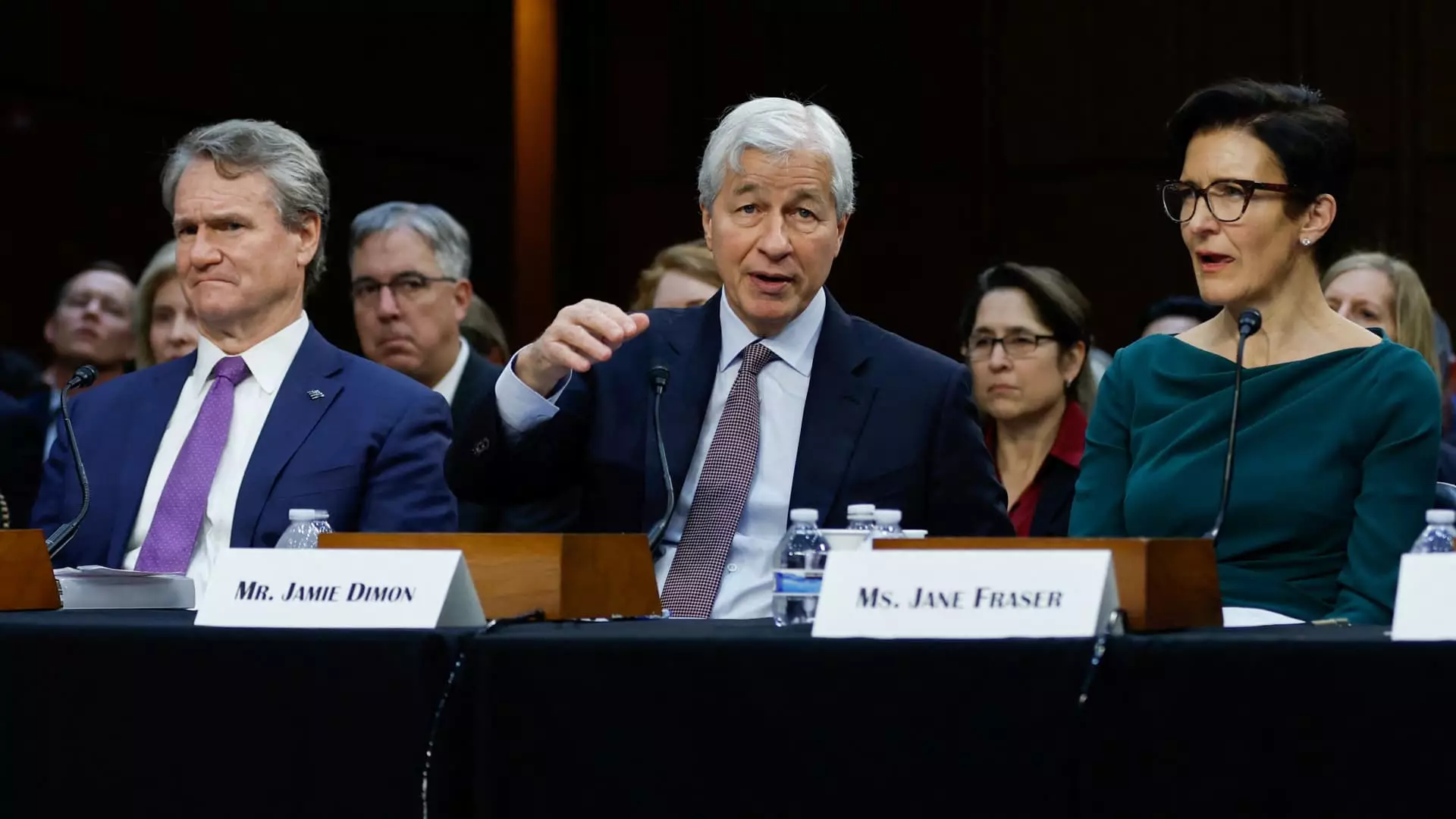Wall Street CEOs recently voiced their opposition to proposed regulations aimed at increasing capital requirements for banks. During an annual Senate oversight hearing, the CEOs of eight major banks expressed their concerns about the potential impact of these changes. The CEOs argued that the new rules, known as the Basel 3 endgame, could have detrimental effects on the economy, markets, businesses of all sizes, and American households.
In their prepared remarks and responses to lawmakers’ questions, the CEOs warned of the potential consequences of the proposed regulations. JPMorgan Chase CEO Jamie Dimon claimed that if left unchanged, the capital requirements would increase by approximately 25% for the largest banks. This would not only impact the profitability and growth prospects of the banking industry but also benefit non-bank players such as Apollo and Blackstone, who have gained market share as banks retreated due to stricter regulations.
While the major banks could comply with the current rules, the CEOs emphasized that there would still be winners and losers. They expressed concerns about unintentionally harming small business owners, mortgage customers, pensions, other investors, as well as rural and low-income customers. Dimon pointed out that mortgages and small business loans would become more expensive and harder to access, particularly for low- to moderate-income borrowers. The increased cost of capital would also lead to lower returns for retirement and college savings. Furthermore, financing government infrastructure projects, such as hospitals, bridges, and roads, would become even more expensive. The rise in commodity prices would result in higher consumer costs, and farmers in rural communities would face higher borrowing costs.
The CEOs further warned that the heightened oversight on banks would inadvertently push financial activities towards non-bank players, also known as shadow banks. This shift could potentially expose regulators to new risks that they might not be able to effectively monitor. By diverting attention and resources away from traditional banks, the proposed regulations may create blind spots in the system.
During the three-hour hearing, lawmakers’ questioning often aligned with partisan lines. Democrats showed skepticism towards the CEOs’ arguments, while Republicans inquired about the potential impact on everyday Americans. Senator Sherrod Brown, a Democrat from Ohio, criticized the banking industry’s lobbying efforts against the Basel 3 endgame. He challenged the CEOs by questioning whether they genuinely believed that cracking down on Wall Street would harm working families.
As the debate continues, it remains to be seen whether the concerns raised by Wall Street CEOs will have an impact on the proposed regulations. The CEOs have made a compelling argument against the potential consequences of increased capital requirements. However, regulators will inevitably need to strike a balance between protecting the financial system and ensuring that banks are adequately prepared for future risks. In the coming months and years, the trajectory of these regulations will shape the landscape of the banking industry and its relationship with non-bank players.
Wall Street CEOs articulate their concerns over proposed regulations to increase banks’ capital requirements. They argue that the new rules could have far-reaching consequences, impacting the economy, businesses, and households. While they acknowledge the need for oversight, the CEOs highlight potential unintended victims, such as small business owners, mortgage customers, and rural communities. The shift towards non-bank players is another worrisome aspect, as it may create blind spots for regulators. As the debate unfolds, stakeholders must carefully consider the balance between regulation and the industry’s ability to thrive and support economic growth.


Leave a Reply